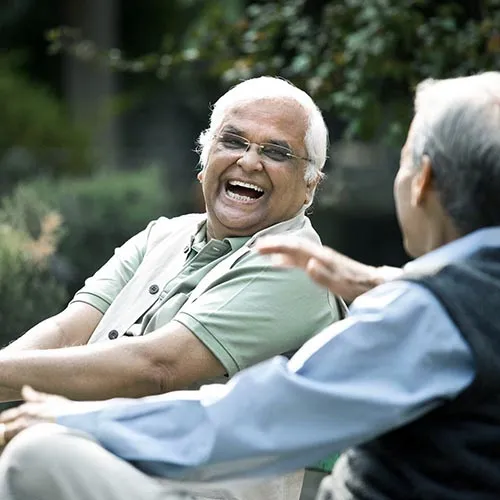The Importance Of Socialization In Assisted Living Facilities In India
Combatting Loneliness and Depression:
Seniors who live alone or who are suffering from a decline in their physical health are more likely to experience loneliness and sadness. Seniors who participate in social activities have the chance to interact with people and develop lasting relationships, which can help them deal with these emotions. Seniors can improve their quality of life and lessen their feelings of loneliness and sadness by interacting with people and participating in social activities.
Improved Physical Health:
Seniors’ physical health might also benefit from socialisation. Seniors can preserve their physical health and lower their risk of chronic diseases by participating in social events and physical activity. Seniors who are socialised with tend to recover from illnesses or accidents more rapidly because it gives them the support and motivation they need to continue being active and engaged.
Mental Stimulation:
Seniors who socialise may also benefit from mental stimulation. Seniors’ cognitive performance, memory, and attention can all be improved by participating in social activities. Participating in social activities as a senior may also lower their chances of dementia and cognitive impairment.
Emotional Support:
Seniors who participate in social activities can get emotional assistance. Seniors who are close to others may find it easier to deal with life’s difficulties like illness, grief, or change. Socialization can make seniors feel more resilient and better able to handle stress because it offers emotional support.
Opportunities for Learning and Growth:
Seniors who are socialised with may have more opportunity for learning and development. Seniors can develop new skills, explore new interests, and find new hobbies by taking part in social events. This can give elders a feeling of purpose and help them feel more involved and fulfilled.
The value of socialisation for seniors is recognised by assisted living facilities in India, which provide a variety of programmes and activities to encourage it. Exercise classes, music and art classes, social gatherings, and excursions are a few examples. Also, the facilities might provide places for community eating where elders can join together for meals and chat.
Yet, seniors living in assisted living facilities in coimbatore may have socialisation difficulties. Seniors could feel embarrassed about their abilities, health, or attractiveness, for instance. Also, it could be challenging for individuals to take part in social activities due to their limited mobility or access to transportation. Some senior citizens may also struggle with cognitive or communication issues, which makes it difficult for them to interact socially.
Seniors might receive specialised assistance from assisted living facilities to address these difficulties. They can supply transportation to and from social events, modify workouts or other activities to fit the capacities of elders, and support those who require it with their cognition and speech.
Socialization programmes have been introduced in a number of assisted living institutions in different nations, including the United States and the United Kingdom, and they have shown to be very successful. For instance, some facilities have regular social events that encourage interaction and friendship among seniors, such as bingo, card games, and movie evenings. Other facilities provide outside activities like gardening or group fitness sessions that not only encourage socialisation but also assist elders keep their physical health.
Due to linguistic and cultural obstacles, socialisation in assisted living facilities in India might be difficult. Some older citizens might feel better at ease conversing in their native tongue or might like taking part in activities that are representative of their culture. As a result, it is crucial for assisted living care facilities in India to take linguistic and cultural diversity into account while planning social events.
In addition, it may be challenging for some seniors to engage in group activities due to physical or cognitive limitations. In such circumstances, facilities should offer tailored socialising activities that address the unique requirements and preferences of each person.
Including family members in the process is one efficient technique to promote socialising among seniors in assisted living facilities in India. Regular visits from family members and participation in social activities with their loved ones might provide them a sense of familiarity and comfort. In addition, family members can encourage elders to interact socially with other residents by introducing them to one another and fostering friendships amongst them.
In conclusion, socialisation is a crucial component of Indian assisted living care institutions. Seniors can get a lot from it, including better mental and physical health, emotional support, and chances for learning and development. Assisted living facilities and family members can offer support and encouragement to help elders stay socially engaged and experience a higher quality of life even when there may be socialisation challenges.



